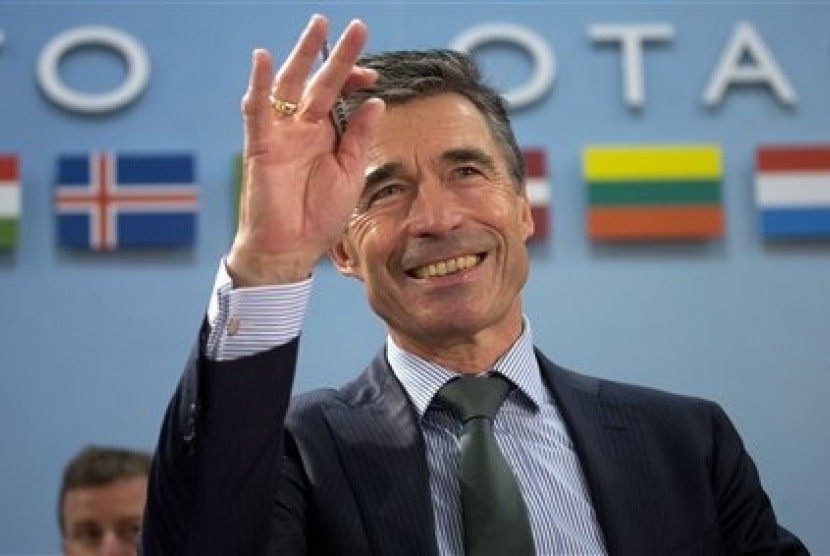REPUBLIKA.CO.ID, BRUSSELS - NATO's foreign ministers ordered an end to civilian and military cooperation with Russia on Tuesday and told their generals and admirals to quickly figure out ways to better protect alliance members that feel threatened by Vladimir Putin's Kremlin.
The 28-member alliance, the keystone of US. and European security since the end of World War II, was reacting to its most serious crisis in years: Russia's unilateral annexation of Ukraine's Crimean Peninsula, which the US and its allies have condemned as an illegal land grab.
US Secretary of State John Kerry and the other ministers, meeting at NATO headquarters in Brussels behind closed doors, unanimously agreed Tuesday on a number of measures. A civilian NATO official who attended the meeting and briefed reporters afterward on condition of anonymity said the steps included:
— The suspension of "all practical civilian and military cooperation" between NATO and Russia. NATO officials said ambassadorial-level contacts will remain open to assure a reliable channel of communication.
— The possible deployment and reinforcement of military assets in eastern NATO members, such as Poland and the Baltic states, that feel menaced by Moscow's latest actions.
__ A possible increase of readiness levels for the NATO rapid response force.
__ A possible review of NATO's crisis response plans, as well as its military training and exercise schedules.
NATO Supreme Commander Gen. Phil Breedlove and his subordinates will draw up the proposals within a few weeks and then submit them to political leaders for their approval, the NATO official said. To reassure alliance members closest to Russia and Ukraine, NATO already has stepped up air patrols over the Baltic Sea and AWACS surveillance flights over Poland and Romania.
Prior to the meeting, the chief of the North Atlantic Treaty Organization downplayed reports of a Russian troop withdrawal from areas along its border with Ukraine. Russia's Defense Ministry on Monday said one battalion — about 500 troops — had pulled back.
"This is not what we have seen," NATO chief Anders Fogh Rasmussen told reporters Tuesday. "And this massive military buildup can in no way contribute to a de-escalation of the situation — a de-escalation that we all want to see — so I continue to urge Russia to pull back its troops, live up to its international obligation and engage in a constructive dialogue with Ukraine."


